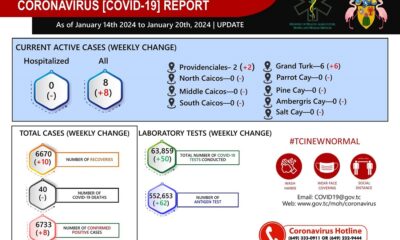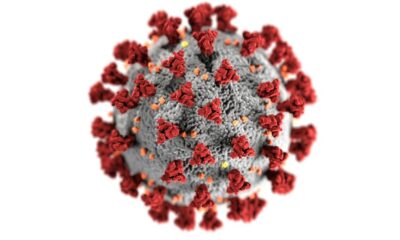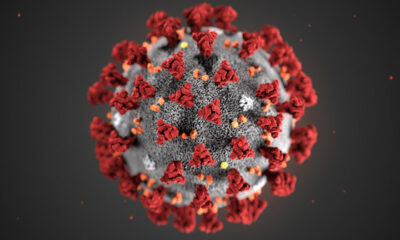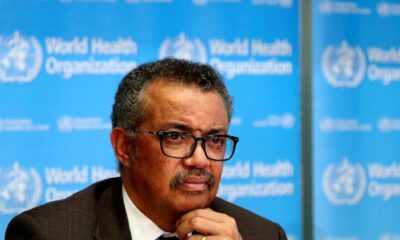#TurksandCaicos – April 30, 2021 – The Turks and Caicos Islands Government recently announced the following policies with a view of mitigating against the effects of the Covid-19 pandemic:
- mandatory vaccination as a condition to obtain a work permit (both new and renewal).
- mandatory weekly testing of public facing public servants who decide not to be vaccinated.
- requiring vaccines to obtain benefit in certain circumstances (e.g., easier re-entry into TCI for vaccinated residents, etc.)
The Human Rights Commission is mandated to take appropriate steps to protect the rights of all residents of the Turks and Caicos Islands and in doing so must act in accordance with the Islands’ Constitution which enshrines various human rights as fundamental rights and freedoms to be enjoyed by all residents of the Islands. Whilst some human rights are absolute, others can be derogated when required by circumstances of public emergencies. The Constitution, like other human rights conventions, allows for the Government to derogate some of the non-absolute fundamental rights during periods of public emergency.
The Commission has considered the policies of the Government and agree that it is empowered under both the Constitution and international conventions to derogate some of the non-absolute rights. In so doing, the government is required to balance the protection of rights against public safety while ensuring that absolute rights are maintained. In the case of the Covid-19 policies, the right of one individual not to be vaccinated must be weighed against the right to life of the general population. This balancing act is a key component of democratic societies. In seeking to balance, the Government must act reasonably, proportionately and in the best interest of the greater population.
The following is a consideration of relevant fundamental human rights:
The right to life (Section 2 of the TCI Constitution)
This is an absolute fundamental human right and cannot be derogated. Accordingly, the Government cannot deliberately take a person’s life. This includes a duty to take proactive, reasonable steps (not all possible steps) to protect a person’s life; and applies when Government knows (or ought to have known) that life is at serious and immediate risk. In a health setting, reasonableness is judged against broadly accepted medical opinion. It is the Commission’s view that the Government has taken reasonable, proportionate, and pro-active steps to protect the lives of its citizens and residents. None of the Government’s actions places any life at serious and immediate risk.
The right to be free from inhuman or degrading treatment (Section 3 of the TCI Constitution)
This is an absolute right and protects against serious physical or mental harm from the Government, whether that harm is intentional or not. The Commission views the Government’s action as proportionate and adequate to protect the general public of harm (both mental and physical). None of the actions will result in inhumane or degrading treatment or harm.
Right to liberty (Section 5 of the TCI Constitution)
This is NOT an absolute right and can be derogated. A person is deprived of their liberty when they are living under constant supervision and/or control and they are not free to leave. The right can be restricted when necessary, under very specific circumstances. A deprivation of liberty is only allowed if it is lawful, legitimate, and proportionate including for the purpose of ‘the prevention of the spreading of infectious diseases. ’Government’s action to implement the policies for the purpose of the prevention of Covid-19. The actions are reasonable and proportionate and does not extremely restrict people’s movements.
The right to private and family life (Section 9 of the TCI Constitution
This is NOT an absolute right and can be derogated. It protects our right to respect for private and family life including physical and mental wellbeing and autonomy (e.g., being able to make decisions about your health and care). Condition of vaccination to enjoy certain benefits (entry into public places, hassle free travel, etc.) may in normal circumstances be a contravention of this fundamental right. It is the Commission’s view that the Government action to derogate this right is warranted under the period of emergency and the derogation of the right is both reasonable and proportionate. Persons are allowed to make the choice about their health however, the government has placed reasonable and proportionate restrictions based on the choice made in the best interest of the population at large.
The right to be free from discrimination (Section 16 of the TCI Constitution):
This is NOT an absolute right and can be derogated. This right seeks to protect our right not to be discriminated against and means that we should all be able to enjoy our human and fundamental rights without discrimination. Differential treatment of people may not be discriminatory if it can be objectively and reasonably justified. In this case with the ongoing public health emergency the action by the Government can be objectively and reasonably justified in the best interests of the population.
Case law in the EU and Caribbean
Courts in both Europe and the Caribbean have considered contravention of human and fundamental rights claims in relation to mandatory vaccines and derogation of citizens’ rights in times of emergency and crisis.
The European Court of Human Rights ruled that the Czech Republic did not contravene any of the EU Human Rights conventions by requiring mandatory vaccinations (it was not, however, in relation of the Covid-19 vaccine).
The Court in Trinidad and Tobago ruled that the Governments action to refuse entry of citizens into Trinidad and Tobago was not in contravention of any constitutional and fundamental human rights during a time of crisis.
Conclusion
The Commission is not persuaded that the Government’s policies have contravened any rights enshrined in the Constitution. Further, that the policies as implemented are so done for the protection of the public in this time of emergency caused by the Covid-19 pandemic is reasonable and proportionate and it is in their opinion in the best interest of the greater good. We do not think that any of the actions by the Government described herein contravenes any human right or fundamental constitutional right of any resident of the Turks and Caicos Islands.
The Human Rights Commission continues to exercise its role as a watchdog institution and for the protection of rights for everyone residing in the Turks and Caicos Islands.
Media Statement provided by the Human Rights Commission of the Turks and Caicos Islands

 Caribbean News7 days ago
Caribbean News7 days ago
 Caribbean News7 days ago
Caribbean News7 days ago
 Caribbean News1 week ago
Caribbean News1 week ago
 Caribbean News1 week ago
Caribbean News1 week ago
 Bahamas News7 days ago
Bahamas News7 days ago
 News7 days ago
News7 days ago
 Bahamas News1 week ago
Bahamas News1 week ago
 News7 days ago
News7 days ago























